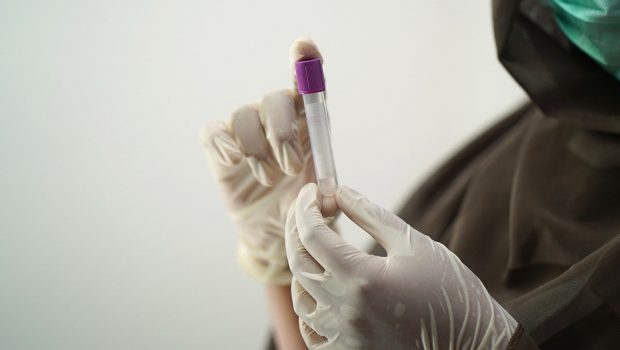7 Countries to Benefit From a COVID-19 Technology Access Pool
https://www.ispeech.org/text.to.speech
TACOMA, Washington — Several pharmaceutical companies have joined the Solidarity Call to Action, the World Health Organization’s (WHO) initiative to share research among public and private entities via a COVID-19 technology access pool. This essential movement aims to eliminate economic obstacles to accessing a vaccine. Thus far, 40 WHO Member States have joined the Solidarity Call to Action, with more on the way. The increasing membership suggests a possible global commitment to open research and tech sharing to nations that are lacking technologically. Here is a closer look at seven countries that would benefit from a global commitment to a COVID-19 technology access pool.
Chile
Although the poverty rate in Chile has steadily decreased since the beginning of the century, much of the Chilean population has been displaced throughout Central and South America. Economic inequality has instigated social unrest, forcing migrants across national borders. While Chile’s poverty rate remains low, the gap between affluent and destitute members of society implies that access to essential services is determined by wealth. A COVID-19 technology access pool would, therefore, help ensure that the vaccine would reach all corners of society.
Dominican Republic
The Caribbean nation has benefitted from trade agreements with the U.S. and it boasts some of the most popular tourist destinations in the world. However, like other countries on this list where tourism makes up a large percentage of gross domestic product (GDP), the Dominican Republic experienced an economic downturn in 2020. This came about despite projections from the beginning of 2020 that its economy would expand. Global trade reductions and travel restrictions severely impeded national growth. Its GDP has contracted by nearly 5% and its future growth predictions are now much lower than they were prior to the pandemic. The economic downturn has pushed many into unemployment and caused some to slip into poverty, making ready access to the vaccine imperative.
Indonesia
International institutions rank the archipelagic nation among countries with the greatest inequality gap. Poor wages, job insecurity and a lack of social mobility keep citizens trapped in poverty. Since 2017, Indonesian President Jokowi has introduced policies to address the wealth gap, making it his top campaign promise. Indonesia’s participation in the Solidarity Call to Action further indicates the country’s commitment to providing essential services for impoverished citizens of Indonesia.
Mozambique
Natural disasters and dubious fiscal policies slowed Mozambique’s economic growth in 2016. The country was especially susceptible to setbacks when COVID-19 shook the foundations of the global economy. As Mozambique seeks to transform its economy over the next few years away from low-productivity subsistence agriculture, it will have to contend with a volatile global economy. Prices on consumer products will be unpredictable and the country will not have had a prior market foothold. To give Mozambique as much assistance as possible, facilitating vaccine and tech distribution through a COVID-19 technology access pool would ensure the Southeast African nation has a healthy workforce to build back stronger.
Pakistan
COVID-19 ravaged densely populated cities in Pakistan. Economists project its poverty rate, which had decreased extraordinarily throughout much of the last decade, will soar in the pandemic’s wake. The UN recommended that “making essential health services available to those in need and protecting health systems” should be prioritized. Certainly, the global community’s prioritization of a COVID-19 technology access pool aligns with the UN’s goals and suggestions for Pakistan.
Sudan
The recently-split country, worn down by natural disasters and interfactional belligerence, is expected to experience significant economic deterioration in the immediate future. The worsening of GDP and development are unavoidable results of COVID-19’s effect on Sudan’s economy. In the longer term, higher food prices, increased unemployment rate and a downturn in the rate of exports will likely create economic hardship for Sudan’s citizens. With lacking infrastructure and worsening healthcare challenges, the open sharing of COVID-19-fighting materials would help ease the burden of the devastated nation.
Tunisia
Two of Tunisia’s most vulnerable economic sectors are tourism and oil. COVID-19’s impact on global industries has affected both sectors, which had kept Tunisia’s poverty rate below 3% before 2020. Tunisia’s economy is expected to contract by about 4% until conditions for global trade and tourism are stabilized. Without a COVID-19 technology access pool, the virus may go uncontained in parts of the world where a vaccine will be less accessible, hindering Tunisia’s economic recovery.
The Solidarity Call to Action creates a COVID-19 technology access pool by sharing intelligence about COVID-19 tech between public and private entities. It cuts against the myopic view of economic and scientific development on a nation-by-nation basis. Instead, the initiative prioritizes cooperation between governments and pharmaceutical companies. New commitments to such an entity indicate an important step forward, providing the means to more effectively vaccinate the world and build back better.
– Taylor Pangman
Photo: Pixabay








Gloss